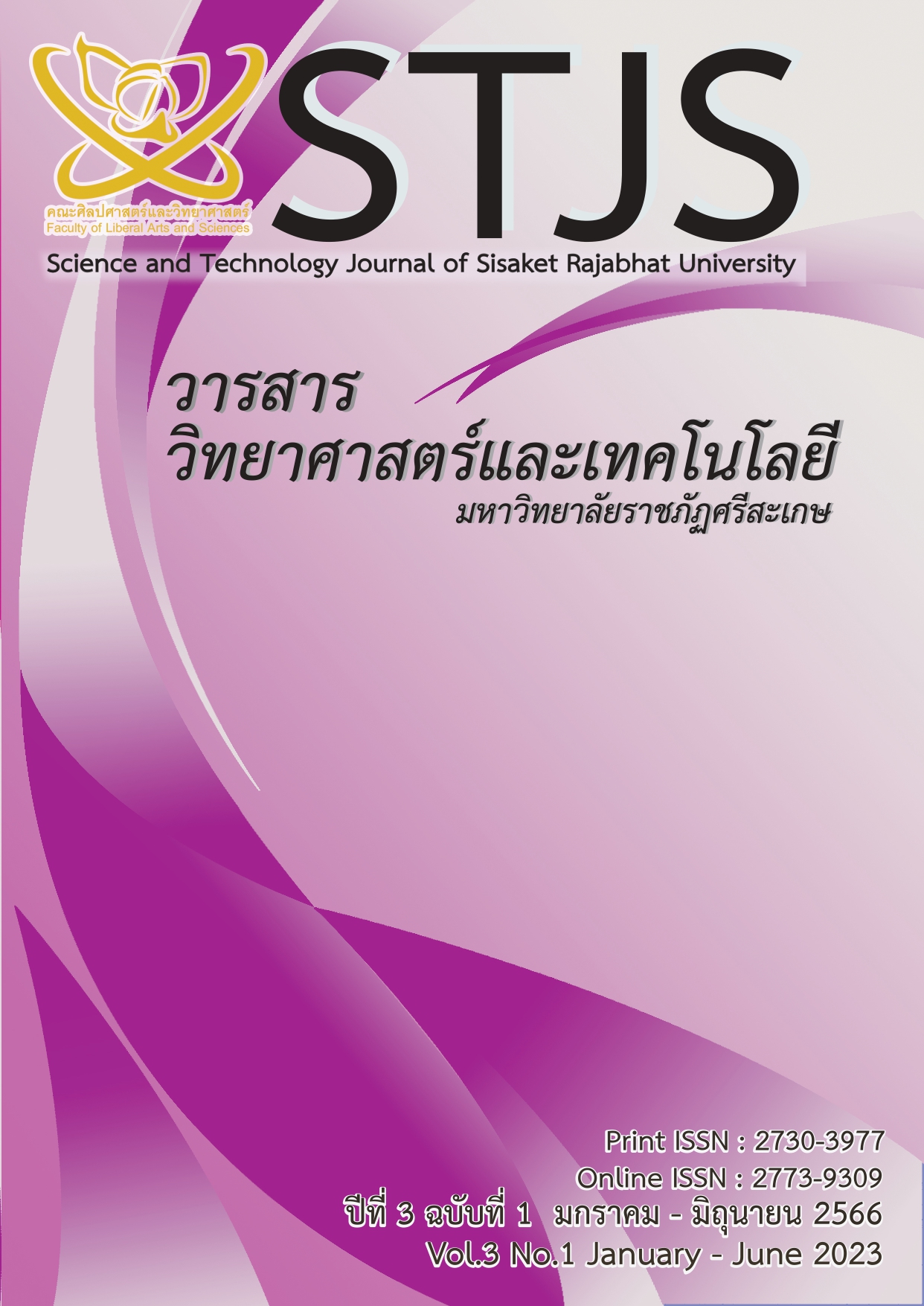ความเป็นพิษต่อเซลล์ของเมลาโทนินและอนุพันธ์ ต่อเซลล์เพาะเลี้ยงชนิดเซลล์ตับ
Main Article Content
บทคัดย่อ
Article Details

อนุญาตภายใต้เงื่อนไข Creative Commons Attribution-NonCommercial-NoDerivatives 4.0 International License.
เนื้อหาและข้อมูลในบทความที่ลงตีพิมพ์ใน Journal of SciTech-ASEAN ถือเป็นข้อคิดเห็นและความรับผิดชอบของผู้เขียนบทความโดยตรงซึ่งกองบรรณาธิการวารสาร ไม่จำเป็นต้องเห็นด้วย หรือร่วมรับผิดชอบใด ๆ
บทความ ข้อมูล เนื้อหา รูปภาพ ฯลฯ ที่ได้รับการตีพิมพ์ใน Journal of SciTech-ASEAN ถือเป็นลิขสิทธิ์ของ Journal of SciTech-ASEAN หากบุคคลหรือหน่วยงานใดต้องการนำทั้งหมดหรือส่วนหนึ่งส่วนใดไปเผยแพร่ต่อหรือเพื่อกระทำการใด จะต้องได้รับอนุญาตเป็นลายลักษณ์อักษรจาก Journal of SciTech-ASEAN ก่อนเท่านั้น
เอกสารอ้างอิง
World Health Organization (WHO). (2022). Cancer. Retrieved 10 September 2022, from https://www.who.int/news-room/fact-sheets/detail/cancer.
Ferlay. J., Colombet, M., Soerjomataram, I., Parkin, DM., Piñeros, M., Znaor, A. and Bray, F. (2021). Cancer statistics for the year 2020: An overview. International Journal of cancer, 149(5), 778-789.
Tan, XW., Xia, H., Xu, JH. and Cao, JG. (2009). Induction of apoptosis in human liver carcinoma HepG2 cell line by 5-allyl-7-gen-difluoromethylenechrysin. World Journal of Gastroenterology, 15(18), 2234-2239.
Menéndez-Menéndez, J. & Martínez-Campa, C. (2018). Melatonin: An Anti-Tumor Agent in Hormone-Dependent Cancers. International Journal of Endocrinology, 2018(1), 1-20.
Martin-Renedo, J., Mauriz, JL. and Jorquera, F. (2008). Melatonin induces cell cycle arrest and apoptosis in hepatocarcinoma HepG2 cell line. Journal of Pineal Research, 45(4), 532–540.
Blask, DE., Sauer, LA. and Dauchy, RT. (2002). Melatonin as a chronobiotic/anti-cancer agent: cellular biochemical and molecular mechanisms of action and their implications for circadian-based cancer therapy. Current Topics in Medicinal Chemistry, 2(2), 113–132.
Joo, SS. & Yoo, YM. (2009). Melatonin induces apoptotic death in LNCaP cells via p38 and JNK pathways: therapeutic implications for prostate cancer. Journal of Pineal Research, 47(1), 8–14.
Marot, C., Chavatte, P., Morin-Allory, L., Viaud, M.C., Guillaumet, G., Renard, P., Lesieur, D. and Michel, A. (1998). Pharmacophoric search and 3D-QSAR comparative molecular field analysis studies on agonists of melatonin sheep receptors. Journal of Medicinal Chemistry, 41(23), 4453-4465.
Rivara, S., Pala, D., Bedini, A. and Spadoni, G. (2015). Therapeutic uses of melatonin and melatonin derivatives: a patent review (2012 - 2014). Expert Opinion on Therapeutic Patents, 25(4), 425-441.
Blask, DE., Sauer, LA., Dauchy, RT., Holowachuk, EW., Ruhoff, MS. and Kopff, HS. (1999). Melatonin Inhibition of Cancer Growth in Vivo Involves Suppression of Tumor Fatty Acid Metabolism via Melatonin Receptor-mediated Signal Transduction Events. Cancer research, 59(15), 4693–4701.
Sauer, LA., Dauchy, RT. and Blask, DE. (2001). Polyunsaturated fatty acids, melatonin and cancer prevention. Biochemical Pharmacology, 61(12), 1455–1462.
Lissoni, P. (2002). Is there a role for melatonin in supportive care?. Supportive Cancer Care, 10(2), 110–116.
Zhou, J., Lei, W., Shen, L., Luo, HS., and Shen, ZX. (2008). Primary study of leptin and human hepatocellular carcinoma. World Journal of Gastroenterology, 14(18), 2900-2904.
Rodriguez-Garcia, A., Hevia, D., Mayo, JC., et al. (2017). Thioredoxin 1 modulates apoptosis induced by bioactive compounds in prostate cancer cells. Redox Biology, 12(1), 634–647.
Wang, Z., Fan, J., Liu, M., et al. (2013). Nutraceuticals for prostate cancer chemoprevention: From molecular mechanisms to clinical application. Expert Opinion on Investigational Drugs, 22(1), 1613–1626.
Fan, LL., Sun, GP., Wei, W., Wang, Z.-G., Ge, L., Fu, W.-Z. and Wang, H. (2010). Melatonin and Doxorubicin synergistically induce cell apoptosis in human hepatoma cell lines. World Journal of Gastroenterology, 16(12), 1473-1481.


